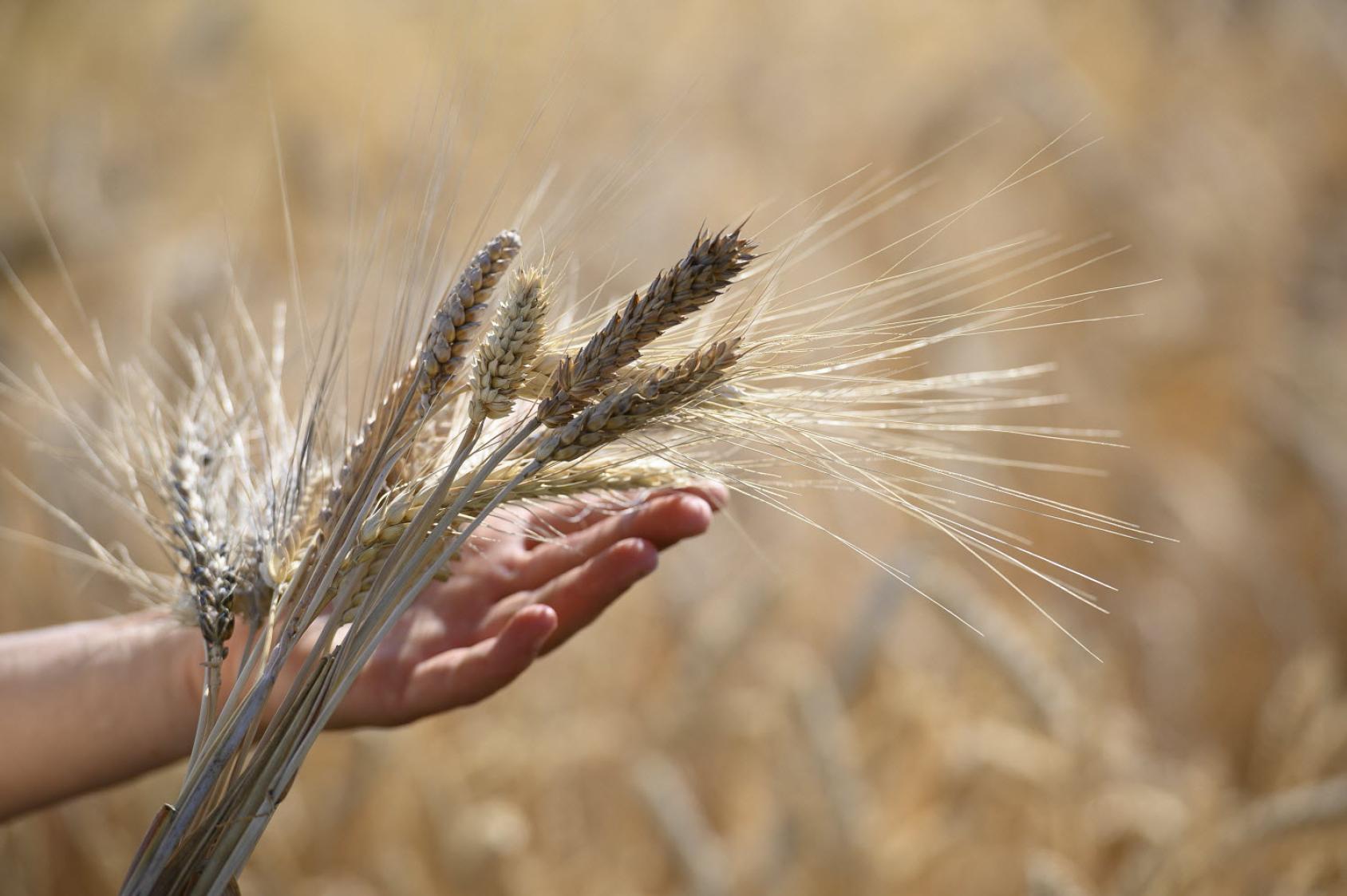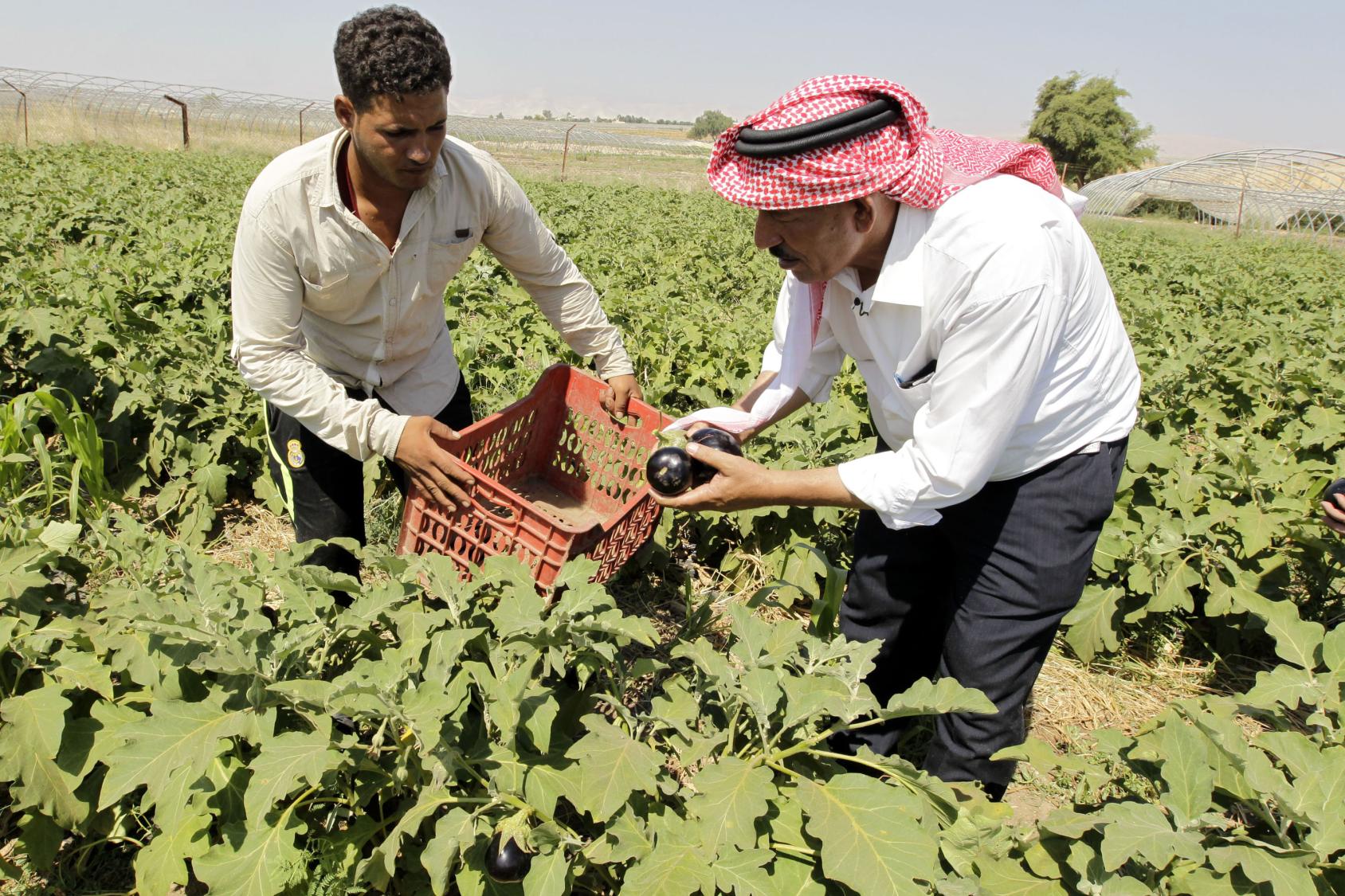Feeding Progress: Putting People at the Heart of Food Systems Transformation
From growing healthier communities to boosting local economies and building resilience to climate change, food systems are transforming lives in powerful ways. Since the world came together at the 2021 UN Food Systems Summit, countries have been working to turn promises into progress.
Now at the 2025 Food Systems Summit +4 Stocktake, the global community is taking stock, and one issue is clear: stronger food systems lead to better futures, driving progress across the Sustainable Development Goals (SDGs).
Across diverse country contexts, UN Country Teams (UNCTs) under the leadership of Resident Coordinators (RCs) are supporting national efforts to make these transformations real, aligning their expertise and partnerships to help deliver results from the ground up.

Ethiopia: Seeds of resilience and growth
In Ethiopia, food systems change is tied to something bigger: lifting people out of poverty, withstanding climate shocks and creating more inclusive economic opportunities. Since 2023, UN-backed nursery sites in Semera, Hawassa, Jimma, and Bahir Dar have been supplying seedlings that are already greening 173 hectares of land in and around cities. For 80,000 smallholder farmers, new farming tools and training have turned 25,000 hectares into productive fields. Beyond these numbers is a shift in the country’s capacity: the UN supported the mobilisation of $129 million from the World Bank to strengthen the Oromia Forest and Wildlife Enterprise, reinforcing Ethiopia’s capacity to manage its natural resources in a sustainable way.
Joint programmes, that bring together the UN team under the leadership of the RC, are sparking change in value chains too. The SMART Food Systems initiative led by Food and Agriculture Organization (FAO) and World Food Programme (WFP), is opening markets and finance for farmers in Ethiopia’s Somali, Sidama and Southern Regions, while another joint efforts by FAO, UN Industrial Development Organization (UNIDO), UN Capital Development Fund (UNCDF), International Fund for Agricultural Development (IFAD) in Ethiopia’s largest region, Oromia, is unlocking over USD 25 million in public and private investments to modernise Ethiopia’s poultry market.
Guyana: Farmers feeding classrooms and futures
In Guyana’s remote Region 9, food systems investments are creating a ripple effect that begins with innovation in farming and culminates in full classrooms and healthier children. Farmers are learning new ways to grow, and children are eating better because of it.
Through climate-smart agriculture initiatives led by FAO, 77 local farmers have been trained to adopt modern farming techniques like greenhouse systems that increase harvests while protecting against climate shocks. These efforts feed into Guyana’s leadership role across the Caribbean, where the country is driving regional food security through the “25 x 25 + 5” initiative to cut food imports by a quarter by 2025.
The results are felt beyond the field. The joint WFP/FAO Home-Grown School Feeding (HGSF) programme, reaches 14 to 16 primary schools and feeds 2,500–2,600 schoolchildren using ingredients sourced from nearby farms. For 75 smallholder farmers, including 28 women, this is more than a market: it’s a pathway to entrepreneurship, backed by dedicated training and reliable buyers.
The impact is visible: Children are coming to school more regularly, classrooms are livelier, and the food on their plates is more nutritious. To keep that momentum going, the UN is helping roll out the School Menu Planner PLUS tool, which designs healthy menus while prioritising local produce.
By connecting smarter farming with better school meals, the UN and its partners are helping to revitalise rural economies, strengthen education, and bring better food and better opportunities to some of Guyana’s most underserved communities.
Indonesia: Women powering change with digital tools
Indonesia has woven food systems transformation into its long-term plans, linking it to climate goals and food security. The President of Indonesia has made a bold commitment to food systems transformation, recognising their interconnectedness with the country’s climate ambitions. On the ground, the story is about people, especially women, using innovation to reshape their futures. With UN support, women entrepreneurs across several provinces are using technology to boost productivity and access markets.
In East Nusa Tenggara, digital platforms have enhanced traceability and efficiency in the seaweed value chain while empowering women throughout the production cycle - from seedling to harvest. In Yogyakarta, women-led Ulva seaweed businesses saw a twelvefold increase in sales after receiving targeted support in quality control, packaging, and digital marketing. The MyNyale initiative, named for a symbol of selflessness and unity, brings together farmers, artisans, and entrepreneurs under one shared brand. Through a centralised quality control hub and a digital platform for marketing and innovation, it has helped more than 1,000 small businesses join forces. Over 1,300 entrepreneurs, many of them women, have learned to use digital tools, showing how technology can turn good ideas and hard work into thriving, resilient businesses.
Jordan: Building food security through data
In Jordan, the journey toward sustainable food security is being reshaped through strong national leadership and UN support.
In 2024, with UN support under the leadership of the Resident Coordinator, the government launched its first National Food Security Management Information System, a digital backbone that tracks everything from food stocks to supply risks. A new dashboard within the National Center for Security and Crisis Management now gives decision-makers real-time data to guide action and investments. Jordan further advanced its leadership in the region with the launch of a Mashreq-wide Food Security and Nutrition Observatory, also supported by the UN.
A strong partnership between the Government of Jordan and the UN Joint SDG Fund is being further expanded through a Joint Programme that brings together, under the RC’s leadership, 14 UN agencies, working together to scale innovation, from climate-smart farms to agro-processing and storage facilities, generating income, reducing food loss, and creating jobs. These efforts form part of a coordinated, multi-sectoral transformation enhancing food security, resilience, and inclusive development across the Kingdom.

Kyrgyzstan: Policies taking root on the ground
In Kyrgyzstan, change is starting with policy but reaching all the way to kitchens and classrooms. With coordinated support from the UN, the Government has advanced a series of foundational policies, including a Food Security and Nutrition Program (2025-2030), new draft Food Safety Law, a Strategic Plan for Veterinary Services (2024–2028) and other sector specific programmes.
The RCO brought together FAO, WFP and UN Conference on Trade and Development (UNCTAD) for an inclusive policy dialogue that helped the country better understand the true costs of its food systems. This work is helping the government align its budgets with the real needs of farmers and families. These efforts are reinforced by the Scaling Up Nutrition coalition, which includes FAO, UN Children’s Fund (UNICEF), WFP and World Health Organization (WHO). Together, they are ensuring that national policies are not only well-designed but grounded in the realities of local communities.
Those policies are showing up in daily life. More than 2,000 people have been trained in food safety and processing, and over 900 community infrastructure projects, from irrigation channels to drinking water systems, have improved water access for 60,000 hectares of farmland, benefiting 52,000 households.
Togo: Scaling up food systems for 2030
Togo has developed an ambitious 2030 roadmap for food systems transformation with the FAO, IFAD, and WFP. The plan focuses on five priorities: sustainable farming and fisheries, better use of agricultural products, access to healthy food, gender equality, and stronger governance and financing.
Progress is already visible. In 2024, Togo recorded a record cereal production of 1.5 million tons, against a backdrop of steady growth since 2019, while poultry numbers topped 38 million, and fish farming rose from just 20 tons in 2011 to 1,300 tons. With UN support, over 15,000 producers and 10,000 vulnerable farming households, more than half led by women, grew their yields through training, digital advisory tools in local languages, and stronger value chains.
The Resident Coordinator’s Office helped mobilise €11 million from the European Union and $9.3 million from the African Development Bank for climate resilience and food system strengthening, showing how global support is fuelling national transformation.
Central Sahel: Co-creating resilient food systems
In Burkina Faso, Mali, and Niger, food systems are becoming the foundation for something bigger: peace. Governments and the UN are working side by side on Flagship Programmes that blend farming, livestock, fisheries, and climate-smart practices, targeting regions most affected by insecurity and environmental stress.
In Burkina Faso and Mali, priority value chains, rice, sorghum, millet, livestock (meat and dairy), and aquaculture, are being modernised through expanded irrigation, certified climate-resilient seeds, advanced rice milling and meat processing facilities, and innovative integrated rice-fish farming systems. In Niger, 43,155 hectares of degraded land were restored last year, while over 1,000 hectares of new irrigated plots are growing cereals and vegetables.
With governments, international lenders, private investors, and philanthropists joining forces, the region is proving that food systems can be more than a source of meals. they can be a pathway to resilience.













